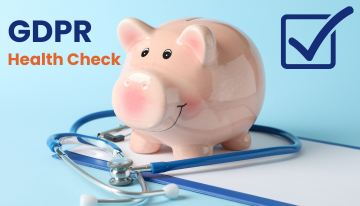Hackers are looking to dupe home workers to steal their personal information or freeze their screens and demand ransoms of thousands of pounds to unlock it.
With more and more people working from home to try and contain COVID-19, now is the time to make sure your data is protected.
This week, the UK’s cyber security agency has advised people working from home to be aware of email scams linked to coronavirus and encrypt data on their devices to protect sensitive data.
This stark warning comes from the National Cyber Security Centre (NCSC), which is part of the Governmental Communications Headquarters, or GCHQ.
Organisations are advised to encrypt sensitive data to mitigate losses should employee devices be stolen or lost outside of the workplace.
Employees are also cautioned to be wary of email scams — many of which in recent months have been coronavirus- or health-themed.
The NCSC advises that employees are more likely to lose their devices or have them stolen when they are away from the office of home.
‘Whether using their own device or the organisation’s, ensure staff understand the risks of leaving them unattended, especially in public places,’ the NCSC told the Daily Mail.
‘When the device is not being used, encourage staff to keep it somewhere safe.’
Emails
The Chartered Trading Standards Institute (CTSI) has urged the public to be aware of emails which look official and claim to be from the government.
The scam offers a tax rebate to support people through this difficult time.
Citizens Advice has launched advice on coronavirus scams and a scam checker.
CTSI chief executive Leon Livermore said: “It is abhorrent that unscrupulous individuals are using this difficult time as an opportunity to immiserate others further.
“Consumers should now be extra vigilant, and aware of these new scams that take many forms.
“The general rule of scams applies – if it seems too good to be true, then it probably is.
“CTSI is monitoring these developments and will update the public as we receive further intelligence.
“In the meantime, the public should follow the official government advice, and take all necessary precautions.”
Fraud
Not only are fraudsters offering face masks, hand gel and other cleaning staples that never arrive, Action Fraud revealed there had been several reports of coronavirus themed phishing emails.
These have been encouraging the recipient to hand over email passwords, debit and credit card details or even open malicious attachments, supposedly have been sent by the Centers for Disease Control and Prevention (CDC) and the World Health Organisation (WHO).
Cifas chief executive Mike Haley said: “We’ve seen fraudsters already exploiting the coronavirus situation on a quite industrial scale – preying on the thirst for information.
“Everyone’s checking every five minutes – ‘Where are the outbreaks’, ‘Is it in my area?’
“We’re all seeing lots of ‘coronavirus latest’ emails – it’s very easy for one of those to slip through.”


